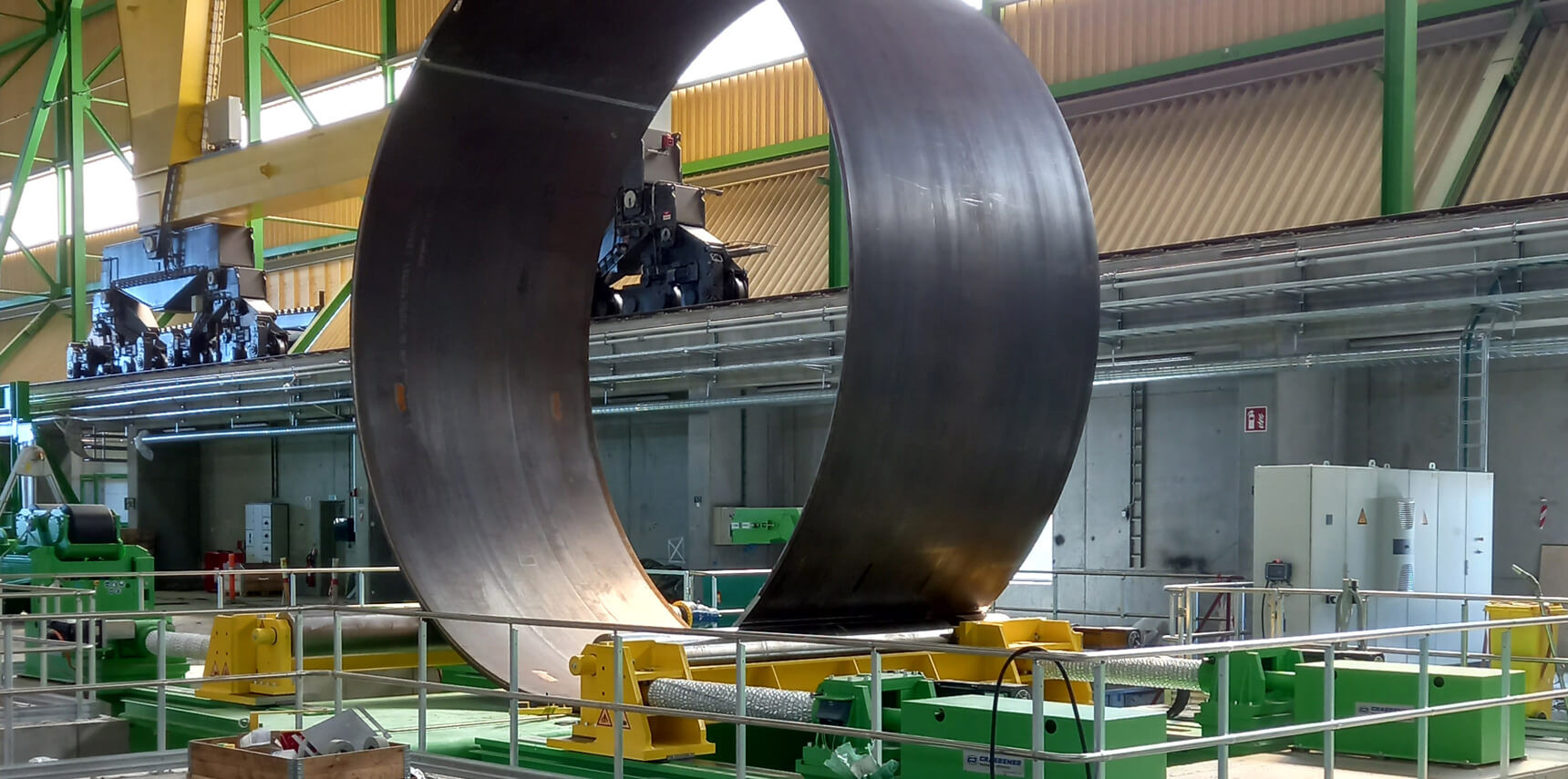As a machine supplier of Bladt Industries for many years, Graebener® was entrusted to accompany the production expansion at the Munkebo site. In May 2022, Graebener® delivered a total of three circular seam milling machines and one longitudinal seam milling machine for the preparation of weld seams on monopile pipe components for milling depths of up to 150mm.
A particular challenge was the customer's request to turn cylindrical and conical pipe shells on the longitudinal seam milling machine - with very large diameters, cone angles of up to 6° and a unit weight of up to 150t.
Turning the pipe shells is necessary because several sheets must be welded together before bending in the case of large pipe diameters (due to the standard sheet lengths). This results in a number of longitudinal seams, on which weld preparation must be performed from the outside by longitudinal seam milling. Each longitudinal seam must therefore be turned on the milling machine into an exact 6 o'clock milling position.
The new pipe turning device developed by Graebener® is capable of safely lifting, turning and lowering the 150-ton pipe shell very precisely.
Normally, drift occurs in the longitudinal direction of the pipe when conical pipe shells are turned. Support rollers are often used to counteract this drift. However, the forces acting on the sheet edge via the support rollers can damage the machined pipe outer edge.
To prevent longitudinal drift from occurring in the first place, Graebener® has developed special rollers on which the pipe shell is rotated instead of rotating rollers. These rollers are positioned by electromotive servo drives in such a way that the conical pipe shells only roll on the larger and smallest pipe diameter. The rotation speed is automatically adjusted, thus preventing drift in the longitudinal direction of the pipe.
The system is also designed to handle different shell lengths.
Return to news overview